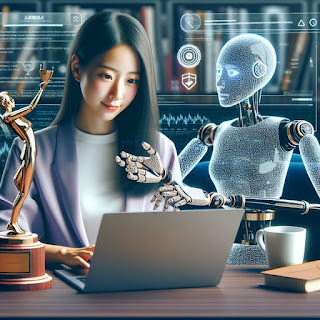Artificial Intelligence (AI) has transitioned from a futuristic concept to an essential tool used in various industries to solve real-world problems. From healthcare and finance to environmental protection and customer service, AI models are revolutionizing the way we approach challenges. In this article, we'll explore how AI models can be effectively utilized to address real problems, with practical examples that enhance clarity and engagement.
1. AI in Healthcare: Early Disease Detection
AI-powered diagnostic tools are transforming healthcare by enabling early detection of diseases. Models trained on vast datasets of medical imaging can identify anomalies in X-rays, MRIs, and CT scans with impressive accuracy.
Example:
Doctors use AI to detect early signs of breast cancer in mammograms, improving patient outcomes by enabling timely intervention. Google's DeepMind, for instance, has developed AI models that diagnose eye diseases by analyzing retinal scans with precision comparable to expert ophthalmologists.
2. AI in Finance: Fraud Detection and Risk Assessment
Financial institutions leverage AI to detect fraudulent transactions and assess credit risks efficiently. These models analyze patterns in transaction history and flag anomalies that may indicate fraud or risky financial behaviors.
Example:
Banks implement AI models to identify suspicious credit card transactions. If a card is suddenly used for an unusual high-value purchase in a different country, AI can immediately flag and block the transaction, preventing fraud before it occurs.
3. AI in Environmental Protection: Predicting Climate Patterns
AI plays a crucial role in environmental research by helping scientists predict climate change effects and natural disasters like hurricanes and wildfires. Predictive models analyze satellite imagery and weather data to generate insights that assist in disaster preparedness.
Example:
AI-based climate models help meteorologists predict and track hurricanes more accurately, enabling communities to prepare and evacuate in time, reducing loss of life and property damage.
4. AI in Customer Service: Personalized Chatbots
Businesses are increasingly using AI chatbots to enhance customer experiences. These chatbots analyze previous conversations and user behavior to offer personalized responses, significantly improving response time and efficiency.
Example:
E-commerce companies deploy AI-powered chatbots that assist customers in real-time, answering common queries about shipping, returns, and product recommendations based on past purchases. This reduces human workload and enhances customer satisfaction.
Conclusion
AI models are solving real-world problems across multiple sectors, making processes more efficient, improving safety, and enhancing decision-making. Whether predicting diseases, mitigating financial risks, or aiding disaster preparedness, AI continues to demonstrate its potential to transform industries.
As AI technology advances, its applications will only expand, offering more solutions to pressing challenges and making the world a smarter, safer, and more efficient place. What other problems do you think AI should tackle next?







0 Comments
Just comment!!!